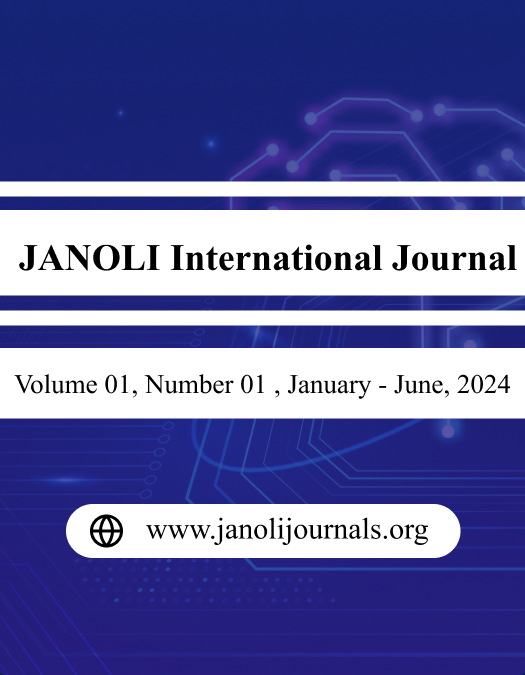Welcome to Shanti Educational Research Foundation, India
A platform to promote multi-disciplinary research in Science, Technology, and Management, is an innovative nonprofit foundation for researchers/ academicians around the globe for research and developments that make this world a happy home for all living. We publish original research work in various journals, reference books, and monographs and organize international conferences and workshops throughout the year under the leadership of Prof. (Dr.) Sanjeev Kumar, Prof (Dr) Mamta Chahar, Prof. (Dr.) Ilona Paweloszek. Prof. (Dr.) Anirudh Pradhan, Prof. (Dr.) Dorota Jelonek, and Prof. (Dr.) Paula Bajdor is our mentor with a team of great professors worldwide. You may join us at any/ all events.
JANOLI International Journal of Mathematical Science
The JANOLI International Journal of Mathematical Science is a prestigious, peer-reviewed journal dedicated to the dissemination of high-quality research in the field of mathematical sciences. The journal provides a global platform for mathematicians, researchers, and academics to publish original research, reviews, and case studies that contribute to the advancement of mathematical knowledge and its applications across various scientific and engineering disciplines.
The primary goal of the journal is to promote the exploration of both pure and applied mathematics, offering insights that further the understanding of complex mathematical concepts and their real-world applications. The journal serves as a valuable resource for:
• Researchers and professionals in mathematics.
• Interdisciplinary scholars using mathematical tools in fields such as physics, engineering, computer science, economics, and biology.
• Educators seeking innovative approaches to mathematical instruction and curriculum development.
Topics to be covered in the journals are as below but not limited to these…………………..
1. Pure Mathematics
• Algebra: Group theory, ring theory, linear algebra, matrix theory, and field theory.
• Number Theory: Prime numbers, cryptographic algorithms, Diophantine equations, and analytic number theory.
• Topology: Algebraic topology, differential topology, and topological spaces.
• Real and Complex Analysis: Functions of a real or complex variable, harmonic analysis, and functional analysis.
• Geometry: Euclidean and non-Euclidean geometries, differential geometry, and geometric structures.
2. Applied Mathematics
• Mathematical Modeling: Modeling in physics, biology, economics, engineering, and environmental science.
• Numerical Analysis: Numerical methods for solving equations, approximation theory, and computational algorithms.
• Differential Equations: Ordinary and partial differential equations, dynamical systems, and stability theory.
• Optimization: Linear, nonlinear, integer, and stochastic optimization techniques.
• Operations Research: Decision-making, resource allocation, logistics, and queuing theory.
3. Probability and Statistics
• Probability Theory: Stochastic processes, random variables, and probabilistic models.
• Statistical Methods: Hypothesis testing, regression analysis, and experimental design.
• Data Analysis and Statistical Learning: Machine learning algorithms, big data analytics, and statistical modeling.
4. Mathematical Physics
• Quantum mechanics, statistical mechanics, general relativity, and string theory.
• Applications of differential geometry and group theory in theoretical physics.
5. Discrete Mathematics
• Graph theory, combinatorics, discrete optimization, and algorithms.
• Cryptography and coding theory.
• Boolean algebra and lattice theory.
6. Computational Mathematics
• Computational fluid dynamics, computational geometry, and symbolic computation.
• Algorithms and complexity theory.
• Finite element methods and scientific computing.
7. Mathematics in Computer Science
• Algorithm design and analysis, computational complexity, and computational learning theory.
• Cryptographic algorithms and information security.
• Artificial intelligence, machine learning, and data structures.
8. Financial Mathematics
• Quantitative finance, risk management, and financial modeling.
• Stochastic calculus and mathematical economics.
9. Mathematics in Engineering
• Applications of mathematics in civil, mechanical, electrical, and chemical engineering.
• Control theory, signal processing, and systems theory.
10. Mathematics Education
• Innovations in teaching methods for mathematics.
• Development of mathematical curricula and resources.
• Assessment techniques and pedagogical approaches in mathematics education.

